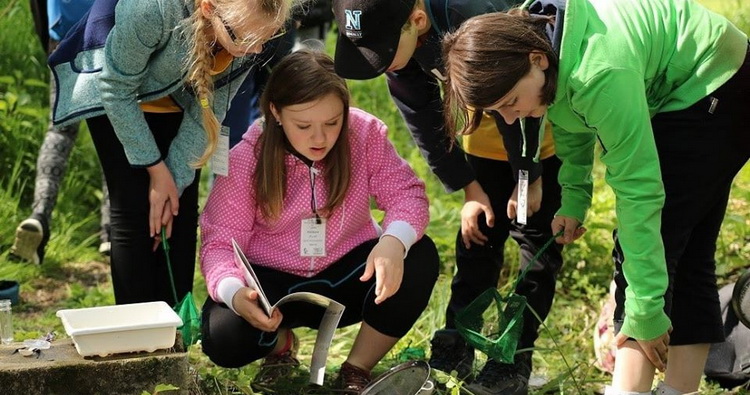NASA-funded science and education programme launching in Georgia

Students and teachers in Georgia will get involved with the global effort to understand and protect the natural environment via the programme. Photo via The GLOBE Program on Facebook.
An international programme for the environment, funded and administered by the United States National Aeronautics and Space Administration, is launching at Georgian primary schools to contribute to young students' understanding of the global issue.
Set to start in a pilot programme at up to five schools this year, the Global Learning and Observations to Benefit the Environment (GLOBE) will be run in a remote format before being expanded into 2020-2021 educational year.
Educating schoolchildren about environmental challenges and their solutions, connecting local schools with international counterparts and contributing to scientific practices at primary school level in Georgia will all be tasks encompassed by the initiative.
Wednesday is the 25th Anniversary of The GLOBE Program, and the 50th anniversary of #EarthDay
— The GLOBE Program (@GLOBEProgram) April 21, 2020
We will have a special video presentation at 11 am ET: https://t.co/I6MJ7tuVzz#NASAatHome #GLOBEatHome #NASAGO #Earth #GLOBE25 #EarthDay2020 #STEM #GOatHome #CitSci #CitizenScience pic.twitter.com/3WSsGz2k17
Signing the agreement between the Ministry of Education, Science, Culture and Sport of Georgia and the Caucasus Environmental NGO Network (CENN), minister Mikheil Chkhenkeli said he was "confident" of a future success of the programme. The signing was coincided with the global Earth Day on Wednesday.
The implementation of GLOBE in Georgia, which involves studies, research and monitoring as well as information-sharing, will take place with support from the Austrian Development Cooperation.
Launched by the US government in 1994, it was extended internationally a year later and involves a vision of bringing together students, teachers and scientists in efforts to "better understand, sustain, and improve Earth's environment".
 Tweet
Tweet  Share
Share